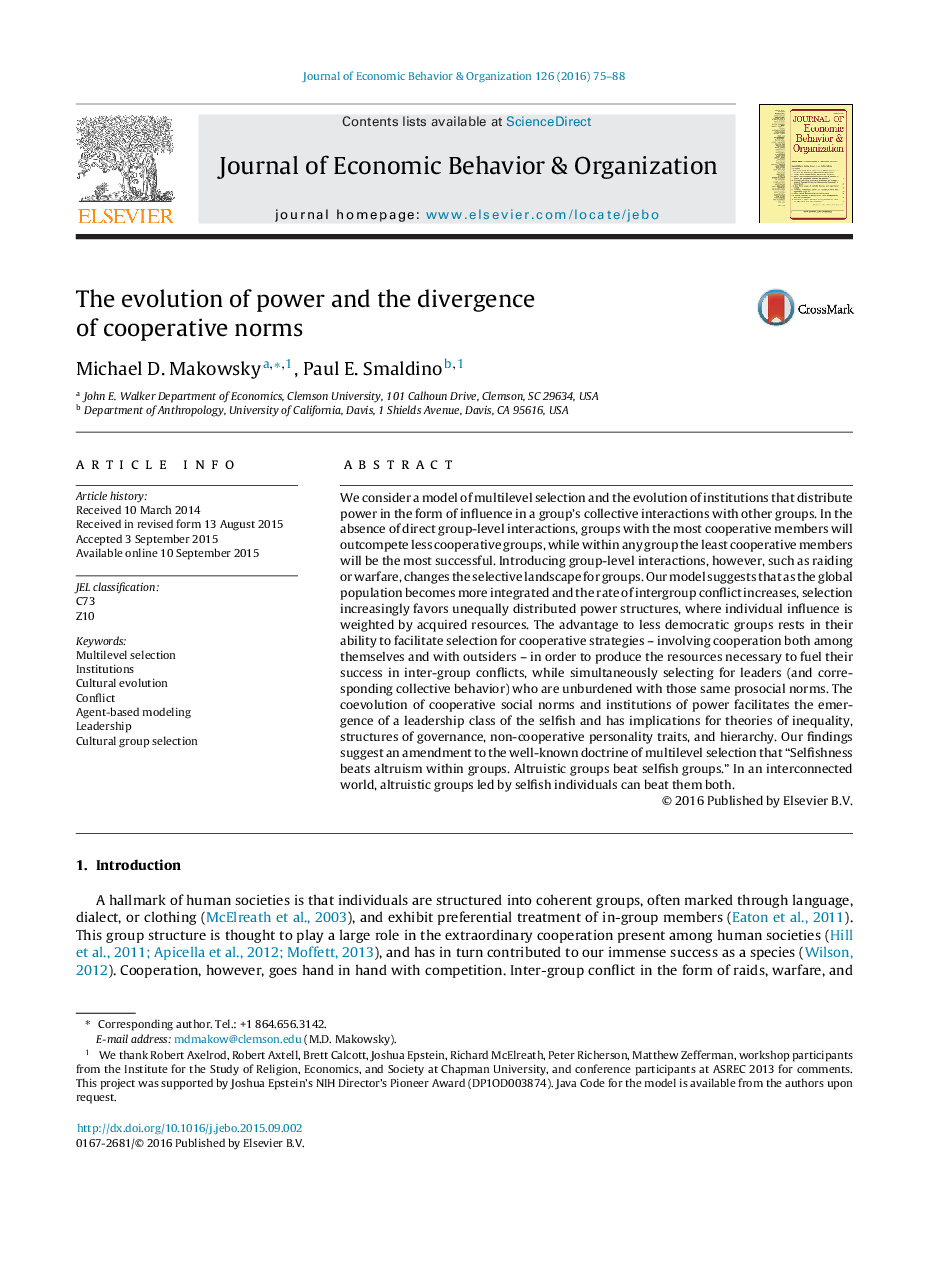| کد مقاله | کد نشریه | سال انتشار | مقاله انگلیسی | نسخه تمام متن |
|---|---|---|---|---|
| 883393 | 912299 | 2016 | 14 صفحه PDF | دانلود رایگان |
• We model the evolution of institutions of power and influence governing groups.
• We index the distribution of power within a group as a Gini coefficient of influence.
• The interaction of population integration and conflict select for lessdemocratic groups.
• Conflict selects for pro-socialindividuals collectively lead by their most selfish members.
• Groups that retain a minority of non-cooperative agents may have a cultural advantage.
We consider a model of multilevel selection and the evolution of institutions that distribute power in the form of influence in a group's collective interactions with other groups. In the absence of direct group-level interactions, groups with the most cooperative members will outcompete less cooperative groups, while within any group the least cooperative members will be the most successful. Introducing group-level interactions, however, such as raiding or warfare, changes the selective landscape for groups. Our model suggests that as the global population becomes more integrated and the rate of intergroup conflict increases, selection increasingly favors unequally distributed power structures, where individual influence is weighted by acquired resources. The advantage to less democratic groups rests in their ability to facilitate selection for cooperative strategies – involving cooperation both among themselves and with outsiders – in order to produce the resources necessary to fuel their success in inter-group conflicts, while simultaneously selecting for leaders (and corresponding collective behavior) who are unburdened with those same prosocial norms. The coevolution of cooperative social norms and institutions of power facilitates the emergence of a leadership class of the selfish and has implications for theories of inequality, structures of governance, non-cooperative personality traits, and hierarchy. Our findings suggest an amendment to the well-known doctrine of multilevel selection that “Selfishness beats altruism within groups. Altruistic groups beat selfish groups.” In an interconnected world, altruistic groups led by selfish individuals can beat them both.
Journal: Journal of Economic Behavior & Organization - Volume 126, Part A, June 2016, Pages 75–88
